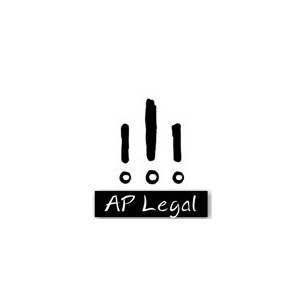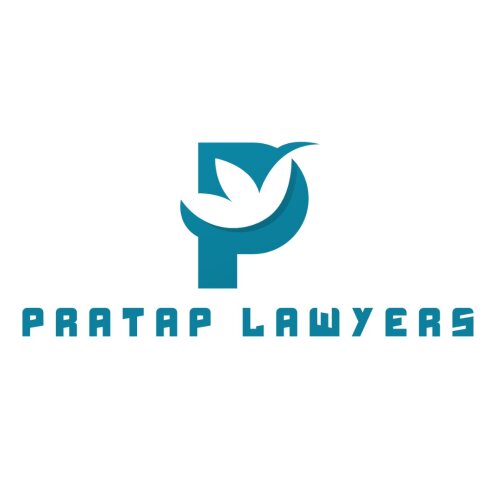Best Conveyancing Lawyers in Suva
Share your needs with us, get contacted by law firms.
Free. Takes 2 min.
Free Guide to Hiring a Real Estate Lawyer
List of the best lawyers in Suva, Fiji
About Conveyancing Law in Suva, Fiji
Conveyancing is the area of law that deals with the legal transfer of property ownership from one person to another. In Suva, Fiji, conveyancing typically involves residential or commercial land, houses, apartments, and even leasehold properties, which are common due to Fiji's customary and government land structures. The process includes preparing and reviewing contracts, carrying out title searches, lodging the required documents for registration, and ensuring all government duties and taxes are properly paid. Suva's property market can be dynamic and complex, so understanding the legal processes of conveyancing is essential for anyone buying, selling, or transferring property.
Why You May Need a Lawyer
The conveyancing process in Suva is not just about signing contracts. There are many situations where having a qualified legal professional is important, such as:
- Buying or selling property and needing to ensure all documents are in order
- Dealing with leasehold property or iTaukei land, which have specific requirements
- Resolving boundary disputes or issues with property titles
- Assessing potential risks like unpaid rates or structural defects
- Handling mortgages, refinancing, or discharging existing loans
- Transferring property as part of a will or family trust
- Ensuring compliance with foreign investment regulations
- Understanding government approvals or stamp duty requirements
A lawyer helps protect your interests, ensures compliance with Fijian law, clarifies your legal obligations, and can help avoid expensive mistakes.
Local Laws Overview
Conveyancing in Suva is governed by a mix of statutory law and customary practices, influenced by Fiji's unique land tenure system. There are three main types of land in Fiji: iTaukei (native land), freehold land, and state land. Each has different legal considerations:
- iTaukei Land - Mostly cannot be bought outright but can be leased through the iTaukei Land Trust Board (TLTB). Leases require approval from TLTB, and transfer of leases is closely regulated.
- Freehold Land - Can be bought, sold, or transferred without the same restrictions as iTaukei land, though government consent may be required for foreign buyers.
- State Land - Leases typically granted by the Ministry of Lands with terms and conditions set by the government.
Key local laws include the Land Transfer Act, Land Sales Act, Property Law Act, and various regulations on foreign ownership, stamp duty, registration of titles, and payment of Value Added Tax (VAT) where applicable. The registration of title is managed via the Registrar of Titles, and legal representation is highly recommended to navigate these requirements.
Frequently Asked Questions
What is the basic conveyancing process in Suva?
Conveyancing in Suva involves preparing and reviewing sale and purchase agreements, conducting title searches, preparing transfer documents, registering the transfer, and attending to stamp duty and government fees. Lawyers also ensure the process adheres to local and statutory requirements.
Do I need a lawyer when buying property in Suva?
Although not legally mandatory, it is strongly advisable. Lawyers ensure the transaction is legally sound, your interests are protected, and any risks are identified and managed.
Can foreigners buy property in Suva?
Foreigners can purchase freehold land and certain leases, but there are restrictions and a minimum investment threshold under the Land Sales Act. Approval from the Ministry of Economy is often required, and specific rules may apply.
What kinds of land are most common in Suva?
Suva features a mix of freehold (private ownership), state land (government-held, lease arrangements), and iTaukei land (native land leased through TLTB). Each has different conveyancing processes and legal considerations.
How are property titles registered?
Property titles are registered with the Registrar of Titles. Registration is essential to establish legal ownership and protect your interests in the property.
Are there taxes or duties to pay when transferring property?
Yes, stamp duty is generally payable on property transfers, and VAT may apply to some sales. These are paid to the Fiji Revenue and Customs Service. Failure to pay can delay or void the registration process.
What is a title search, and why is it important?
A title search investigates the legal history of the property to identify the current registered owner, any encumbrances, caveats, or mortgages. It helps ensure that the property can validly and safely be transferred.
What is the difference between freehold and leasehold property?
Freehold title means you have outright ownership of the land and property, with fewer restrictions. Leasehold or state land means you have rights for a set term (such as 99 years), but ownership remains with the state or TLTB, often requiring additional approvals for transfer or use.
How long does the conveyancing process usually take?
The process varies but typically takes 4 to 8 weeks, depending on the type of land, the need for government or TLTB consent, promptness of parties, and whether there are any complications in the transaction or title.
Can property disputes be resolved during conveyancing?
Yes. If disputes over title, encumbrances, or boundaries arise, your lawyer can help resolve these before settlement, sometimes with the help of surveyors or mediation.
Additional Resources
If you are seeking more information or need official guidance, the following resources can be helpful:
- Registrar of Titles (Ministry of Lands and Mineral Resources) - For title registration and records
- iTaukei Land Trust Board (TLTB) - For matters relating to iTaukei land and leases
- Fiji Revenue and Customs Service (FRCS) - For information on stamp duty and tax requirements
- Law Society of Fiji - For referrals to qualified conveyancing lawyers
- Ministry of Economy - For guidelines on foreign investment and property purchases
Consulting these bodies, along with seeking professional legal advice, is crucial in ensuring a smooth conveyancing process.
Next Steps
If you need legal assistance with conveyancing in Suva, Fiji, consider the following actions:
- Gather all pertinent documents relating to the property or transaction, including title, survey maps, and contracts
- Contact a qualified conveyancing lawyer with experience in Suva property matters
- Request a consultation to discuss your goals and the specific type of property involved
- Ask the lawyer to explain all fees, potential risks, and expected timelines
- Follow your lawyer’s guidance closely on document preparation, payment of duties, and attending to official processes
- Be proactive in addressing any queries or concerns that arise during the process to avoid delays
Conveyancing can be complicated, but with the right legal support, you can protect your interests and complete your transaction smoothly.
Lawzana helps you find the best lawyers and law firms in Suva through a curated and pre-screened list of qualified legal professionals. Our platform offers rankings and detailed profiles of attorneys and law firms, allowing you to compare based on practice areas, including Conveyancing, experience, and client feedback.
Each profile includes a description of the firm's areas of practice, client reviews, team members and partners, year of establishment, spoken languages, office locations, contact information, social media presence, and any published articles or resources. Most firms on our platform speak English and are experienced in both local and international legal matters.
Get a quote from top-rated law firms in Suva, Fiji — quickly, securely, and without unnecessary hassle.
Disclaimer:
The information provided on this page is for general informational purposes only and does not constitute legal advice. While we strive to ensure the accuracy and relevance of the content, legal information may change over time, and interpretations of the law can vary. You should always consult with a qualified legal professional for advice specific to your situation.
We disclaim all liability for actions taken or not taken based on the content of this page. If you believe any information is incorrect or outdated, please contact us, and we will review and update it where appropriate.














